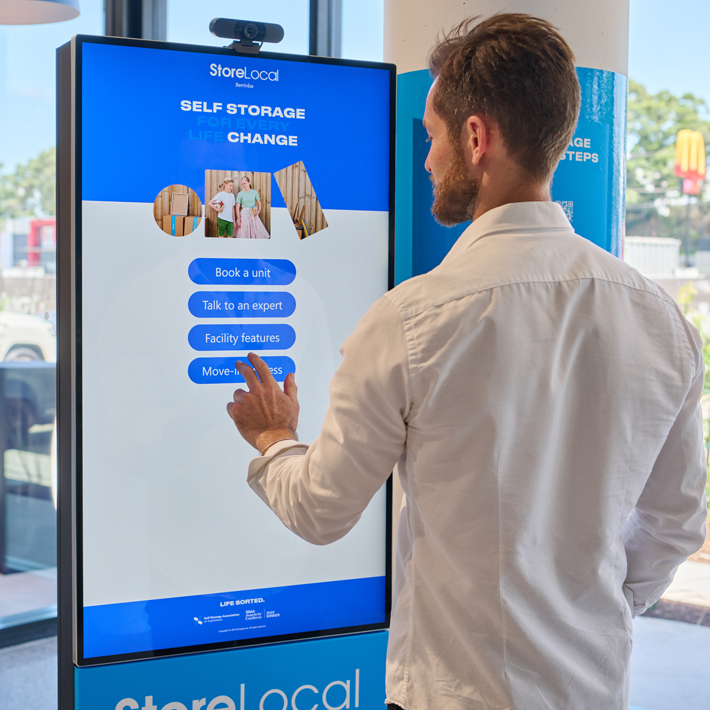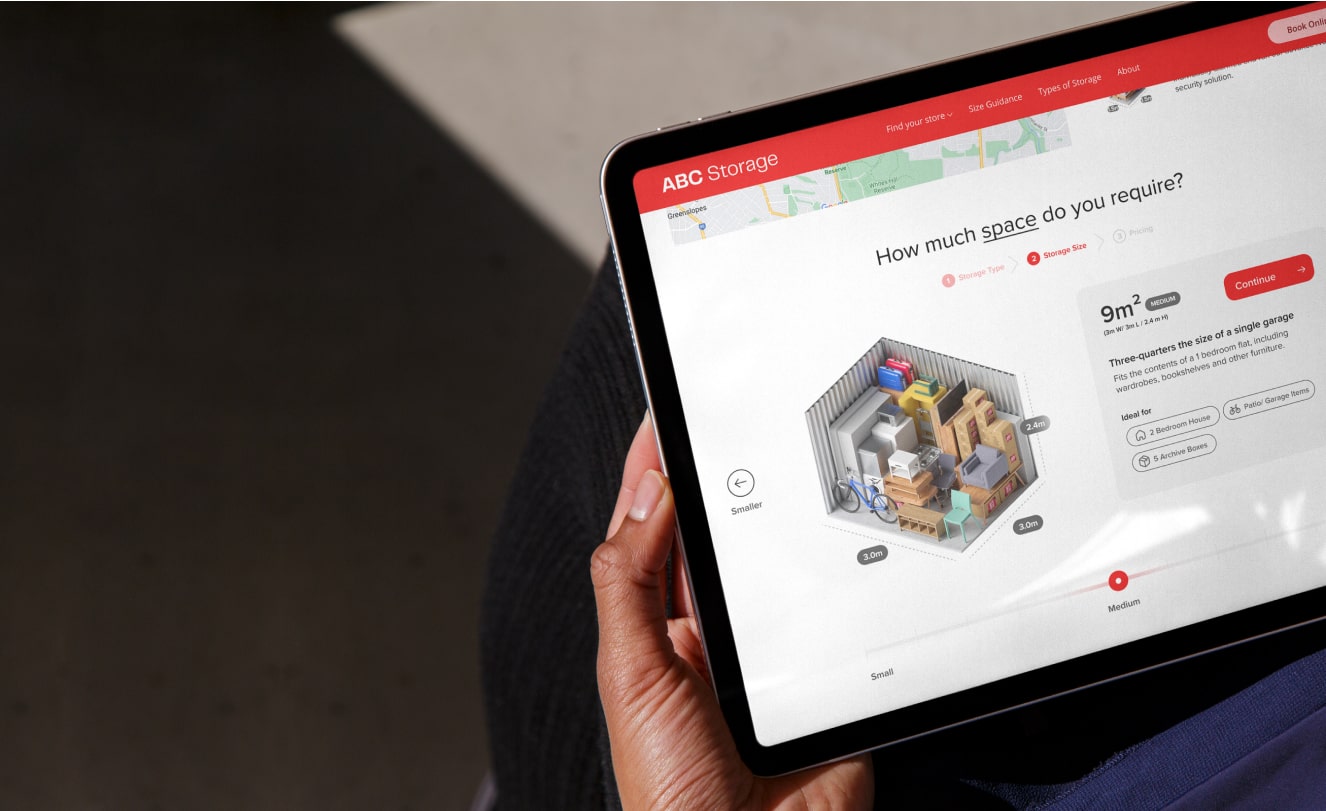Benefits of Remote Management Models in Self Storage
Managing a self storage facility can be challenging, especially when it comes to maintaining high revenue while ensuring customer satisfaction. Many owners are unaware of the benefits that remote management models can offer. This article will discuss how self storage technology, enhances efficiency and responsiveness.
Key Takeaways
- Remote management in self storage enhances operational efficiency and customer experience through automation
- Advanced software solutions allow operators to manage facilities from anywhere, improving responsiveness to customer needs
- Cost-saving strategies include remote staffing and automated billing, reducing payroll expenses for self storage facilities
- Enhanced security features, like real-time surveillance, ensure tenant safety and boost customer trust
- Embracing technology and personalised service fosters strong tenant relationships, increasing satisfaction and loyalty
Understanding Self Storage Remote Management Models

Remote management in self storage, such as those leveraging to power of Sitelink property management software to streamline operations and Rapidstor for creating a seamless web experience for renting and customer engagement, promote transparency and efficiciency. The following sections delve into key aspects, discussing its benefits, potential challenges, and exploring how it automates property management in the self storage industry using R6 Automate’s technology.
Defining Remote Management Models in Self Storage
Remote management can be understood best by breaking it down into a spectrum of how much or how little you want your staff involved the service delivery of your storage offering. This will range from fully staffed teams with lots of customer hand holding to fully remote teams who allow customers to self serve.
The 3 models can be defined as:
- Full Service – This involves staff at every step in the journey to hand hold a customer at each step. It can be thought of as the ‘Business Class’ model. It can be viable where the price charged is a premium fee for a human service. These models still often include the use of the same technology as the self service models in order to provide customers the luxury of choice and enable 24/7 access.
- Assisted Service – This model has some self service technology and some staff run offerings. It can be more efficient than Full Service but still requires people to be present to deliver.
- Self Service – When a self storage site is fully technologically equipped for customer sef service people are no longer required to be on site. Customers can access whenever and however they want and perform all required tasks independently. This is the most cost effective model for the operator and is also the model that increasingly large groups of customers prefer.
Key Advantages of Remote Managed Self Storage Facilities

Remote management models bring numerous benefits to self storage facilities. Increased operational efficiency is achieved through automation and management solutions, while enhanced customer convenience comes from online access via mobile apps and in store digital solutions like kiosks. Cost savings can be realised with remote staffing, and advanced technology improves security. This flexibility empowers managers and operators to respond to evolving needs effectively.
Increased Operational Efficiency Through Automation
Automation in self storage remote management significantly boosts efficiency by streamlining various operational processes. For instance, utilising advanced access control systems allows operators to manage who enters the facility with minimal effort, reducing the need for constant staff oversight. These systems enable automated billing and payment processing, which frees up valuable time for managers to focus on growth and service improvement instead of administrative tasks.
This investment in automated technology not only simplifies daily operations but also enhances the overall customer experience. As facilities in the future adopt robotic systems for maintenance and security, they can ensure that issues are promptly addressed, maintaining a high standard of service without any need for staff. The end result is a more agile business model, where efficiency is maximised and the management team is better positioned to respond to tenants’ needs swiftly:
- Streamlined access control for enhanced security.
- Automated billing and payment processing to save time.
- Increased responsiveness to tenant needs.
Enhanced Customer Convenience With Online Access
Enhanced customer convenience through online access is a significant advantage of remote management models in self storage. By integrating cloud computing solutions, facility operators enable tenants to manage their accounts from anywhere, allowing for features such as automated payment processing. This seamless experience not only simplifies transactions but also improves cash flow by reducing late payments, ultimately benefiting both the customers and the storage facility.
The use of digital tools like webinars and online tutorials can increase comfort in customer adoption of this technology. This added layer of support empowers customers to make informed decisions while enhancing their overall experience. With automation streamlining the processes and providing easy access, self storage operators can foster strong relationships with tenants, leading to increased satisfaction and loyalty.
Cost Savings Achieved With Remote Staffing Solutions
Remote staffing solutions have proven to be a significant cost-saving strategy for self storage facilities. By utilising advanced finance automation solutions and revenue management tools, operators can reduce the need for both on-site and in-office staff, thus lowering payroll expenses. This approach not only eases financial pressures but also enables management to focus resources on enhancing services and improving customer interactions, or simply producing more profit.
Remote management allows for flexible staffing arrangements, meaning that operators can enhance security without increased overhead costs. This proactive strategy ensures optimal facility management while maintaining a lean operational budget, tailored to meet the varied demands of self storage businesses:
Improved Security Features Enabled by Technology
Modern property technology significantly enhances security features in remote managed self storage facilities. With advanced surveillance systems integrated into a centralised dashboards, operators can monitor activities in real time, identifying any unusual behavior swiftly. This proactive approach could not only addresses potential threats but also reassures tenants, fostering a sense of safety that is crucial for consumer satisfaction.
By keeping up with changing consumer behaviour and expectations, self storage facilities can create a secure environment that promotes trust and loyalty among their clients:
Greater Flexibility for Managers and Operators
The adoption of remotely managed solutions in self storage allows managers and operators greater flexibility in how they run their businesses. They can oversee day-to-day operations from their mobile phones, making it easier to address customer needs promptly, regardless of their physical location. This innovation is particularly valuable for operators with multiple facilities, enabling them to efficiently allocate resources, minimise downtime, and focus on enhancing management services without being tied to a single site.
These advanced management models create opportunities for continuous improvement in service delivery. With real-time data at their fingertips, managers can analyse trends, identify potential challenges, and implement changes swiftly to meet evolving customer expectations. This proactive approach not only fosters better customer relationships but also positions the facility for growth in a competitive landscape:
- Enhanced operational oversight from any location.
- Efficient resource allocation for multiple facilities.
- Real-time data analysis for quick decision making.
- Strengthened customer relationships through timely support.
How Self Storage Technology Facilitates Remote Management

Management software plays a vital role in streamlining operations for self storage facilities, enhancing the overall experience for tenants while ensuring effective facility management. Integration of security systems helps mitigate crime risks and increases safety, while cloud-based solutions allow for real-time monitoring of various processes. This section will explore how these technologies work together to optimise operations and address key concerns, such as fees and search engine optimisation strategies.
Role of Management Software in Streamlining Operations
Management software plays a pivotal role in streamlining operations within self storage facilities. By automating routine tasks, the software frees up resources, allowing operators to focus on enhancing customer relationship management, which is increasingly essential in a competitive market.
During the pandemic, self storage businesses faced challenges that highlighted the importance of technology. A robust management software solution not only enables remote access to vital operational data but also facilitates timely communication with customers. This ensures that tenants remain informed and engaged, even when on-site visits are limited. The combination of efficient software and effective customer relationship strategies has proven to be a game-changer for many facilities.
Integration of Security Systems in Remote Facilities
Integrating advanced security systems in remote self storage facilities plays a crucial role in bolstering customer satisfaction. Facilities equipped with real-time surveillance and smart access control systems not only protect tenants’ belongings but also provide a level of transparency that reassures clients. This technological investment often translates to improved accounting processes, as operators can access detailed information about facility usage and incidents, enabling them to address any emerging concerns effectively.
Moreover, streamlined security features simplify payment and invoice management. Automated systems can send reminders for upcoming payment deadlines, reducing the chance of late fees, and enhancing overall cash flow. Facilities that prioritise these integrations not only secure their assets but also foster trust and loyalty among their customers, creating a positive cycle where enhanced security leads to higher levels of satisfaction and retention.
Utilising Cloud-Based Solutions for Real-Time Monitoring
Utilising cloud-based solutions for real-time monitoring in self storage facilities significantly enhances accessibility for operators and tenants alike. With integrated camera systems connected to cloud frameworks, managers can monitor activity on-site from anywhere, ensuring that tenant belongings are secure at all times. This immediate access to vital information not only streamlines operations but also improves transparency, which is critical in building trust with customers.
Moreover, cloud solutions facilitate effective marketing opportunities by allowing self storage businesses to analyse usage patterns and customer behaviors. By keeping track of real-time data, operators can tailor their services and promotional efforts, enhancing customer engagement. Incorporating innovative tools, such as podcasts or webinars, can further educate tenants, fostering a sense of community and loyalty within the self storage environment.
Addressing Concerns With Remote Management Models

Ensuring quality customer service in a digital environment is crucial as self storage facilities embrace remote management models. Handling maintenance and emergency issues effectively directly impacts tenant satisfaction, while balancing automation and personalisation in customer interactions addresses evolving demand. Each of these areas plays a significant role in successful facility management, sustaining positive relationships and ensuring operational resilience in the face of digital transformation.
Ensuring Quality Customer Service in a Digital Environment
Ensuring quality customer service in a digital environment is vital as self storage facilities adopt remote management models. Research shows that customers are likely to share their positive experiences with others, highlighting the importance of prioritising customer experience. Implementing technology, such as Bluetooth-enabled access systems, can enhance engagement and convenience, allowing tenants to securely access their units remotely, all while boosting profit margins for facility operators.
Moreover, as remote work becomes more prevalent, self storage businesses must adapt their customer service strategies to meet evolving needs. Providing comprehensive online support through chatbots or virtual consultations can efficiently address tenant inquiries and concerns, ultimately enhancing satisfaction. Companies focusing on strong digital customer experiences see a strong increase their revenue. This trend clearly shows that investing in technology and service quality can lead to substantial benefits.
Handling Maintenance and Emergency Issues Effectively
Effective handling of maintenance and emergency issues in remote managed self storage relies heavily on leveraging advancements in technology. With the integration of the Internet of Things (IoT), operators can use sensors and smart electronics to monitor facilities continuously. This allows for immediate detection of potential problems, such as temperature fluctuations or security breaches, leading to quicker response times and less disruption for tenants, ultimately enhancing customer service.
Utilising APIs, self storage facilities can connect various tech systems, enabling seamless communication between security protocols and maintenance workflows. For instance, biometrics can be employed for secure facility access or monitoring devices can alert staff about maintenance needs in real time. This level of integration ensures that operators can maintain a high standard of service, providing peace of mind for customers knowing that their belongings are in good hands and that any issues will be addressed swiftly.
Balancing Automation and Personalisation in Customer Interactions
Balancing automation and personalisation is key to effective customer interactions in self storage. While automated systems improve operational efficiency, such as handling maintenance requests or sending reminder emails for payments, they should still feel like they come with a human touch. By integrating personalised communication strategies, such as tailored email responses based on tenant behavior, self storage facilities can create a more engaging customer experience, fostering brand loyalty and satisfaction.
Successful businesses often combine technology with human interaction to address tenant concerns more effectively. For instance, automated systems can quickly handle routine inquiries, allowing staff more time to provide personal assistance for complex issues. This approach ensures that customers feel valued, building stronger relationships and demonstrating a commitment to quality service—essential elements in a competitive self storage marketplace and part of the Full Service and Assisted Service models.
Future Trends in Self Storage Remote Management

Future trends in self storage remote management will spotlight predictions for technology innovations that enhance efficiency and security. The role of managers in remote facilities is set to evolve, shifting towards strategic oversight and customer engagement. Additionally, preparations for a fully integrated self storage experience will emphasise seamless interactions between tenants and operators, ultimately benefiting cash flow and landlord satisfaction while refining advertising strategies in the self storage technology space.
Predictions for Technology Innovations in Self Storage
In the self storage market, predictions for technology innovations point towards more automated climate control systems, particularly regarding temperature regulation for sensitive items. Facilities across the United States are trialing advancements in IoT devices that monitor environmental conditions in real time, allowing property managers to proactively address any fluctuations and maintain optimal conditions. This capability not only protects customers’ belongings but also enhances the overall value and trust in the storage space offered.
As the demand for self storage continues to grow, the integration of artificial intelligence (AI) in storage management is expected to become increasingly prevalent. This technology will enable operators to analyse usage patterns and streamline operations more effectively. By leveraging data, facilities can optimise space utilisation, improve security measures, and enhance customer engagement, providing a tailored experience that meets evolving tenant needs in a competitive market.
The Evolving Role of Managers in Remote Facilities
As technology continues to advance, the role of managers in remote self storage facilities is adapting to include a greater focus on community engagement. Managers will be utilising sophisticated management systems to build a sense of belonging among tenants, enhancing their overall experience. By leveraging tools like social media and online forums, managers foster connections, making customers feel valued and part of a community while increasing tenant retention.
Moreover, with the integration of advanced security technologies, managers are equipped to proactively address concerns related to theft and security. These tools allow operators to monitor facilities in real time, quickly responding to any suspicious activity. As a result, managers are not only focused on daily operations but also play a critical role in ensuring a safe environment, reinforcing the trust customers place in their storage facilities.
Preparing for a Fully Integrated Self Storage Experience
Preparing for a fully integrated self storage experience requires a focus on design that maximises customer engagement and convenience. As technology evolves, operators should ensure that their facilities can leverage intelligence and analytics effectively. For example, integrating mobile access through smartphones can empower tenants to manage their storage units effortlessly, fostering a user-friendly environment and enhancing overall satisfaction.
Additionally, outsourcing certain operational tasks can streamline processes and allow facility managers to focus on strategic improvements. By utilising advanced systems that analyse customer behavior and preferences, operators can tailor their services to meet specific needs. This proactive approach helps build stronger relationships with tenants, ensuring that they feel valued and connected to their storage solutions:
Conclusion
The benefits of remote management models in self storage are clear, significantly enhancing operational efficiency and customer convenience. By integrating advanced technologies, facilities can streamline operations, reduce costs, and improve security, ultimately fostering stronger relationships with tenants. This model empowers managers to adapt quickly to evolving needs, driving growth in a competitive market. Embracing remote management is no longer just an option; it’s a critical strategy for success in the self storage industry.


